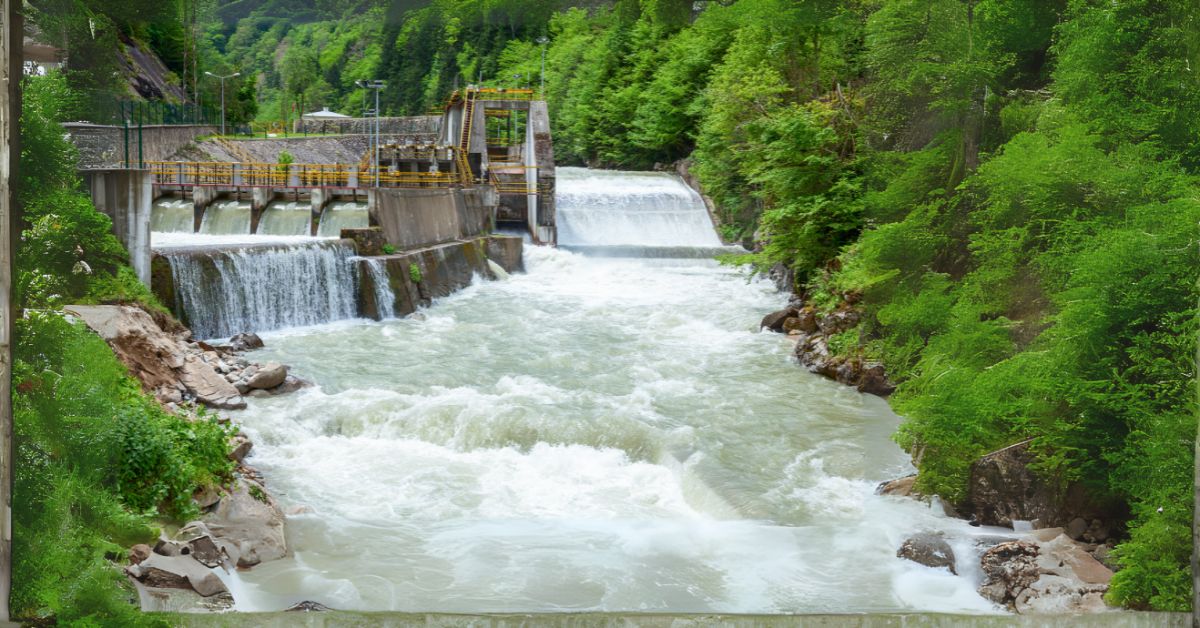
Level 6 Diploma in Water Resource Engineering and Management
Course Overview
The Level 6 Diploma in Water Resource Engineering and Management is an advanced qualification designed for professionals seeking to specialize in the management, planning, and development of water resources. This diploma equips students with the knowledge and skills to address the growing challenges of water scarcity, quality management, and sustainable usage across industries.
This course covers a wide range of topics, including hydrology, water treatment, wastewater management, flood risk assessment, and the role of engineering in water resource management. With increasing demands on water resources globally, this qualification prepares individuals for leadership roles in managing both public and private sector water systems, focusing on sustainability, innovation, and best practices.
Benefits
- Sustainability Focus: Gain expertise in sustainable water resource management techniques and solutions.
- Comprehensive Knowledge: Develop a solid understanding of hydrological principles, water treatment, flood management, and water conservation.
- Industry Expertise: Learn from experienced professionals working in global water resource projects.
- Career Opportunities: Open doors to leadership roles in water resource management across the public and private sectors.
- Global Impact: Play a crucial role in addressing global water challenges, including water scarcity, pollution, and climate change.
Learning Outcomes
Upon completion of this diploma, participants will:
- Develop a comprehensive understanding of water resource engineering, including hydrology, water treatment, and flood management.
- Master techniques for managing and conserving water resources in both urban and rural settings.
- Gain expertise in water quality monitoring, wastewater treatment, and environmental impact assessments.
- Learn to design and implement sustainable water management strategies to meet the demands of industry, agriculture, and urban areas.
- Understand the role of policy, legislation, and regulations in water resource management.
- Prepare for leadership roles in the planning, development, and operation of water systems, addressing challenges like climate change and population growth.
Learning Modules
- Introduction to Water Resource Engineering
- Overview of water resources, their types, and the importance of sustainable management.
- Introduction to hydrology, the water cycle, and its relation to engineering.
- Hydrological Analysis and Modelling
- Study of hydrological cycles, flood prediction, and water balance analysis.
- Introduction to hydrological models and their application in water resource management.
- Water Supply and Distribution Systems
- Designing and managing water distribution systems.
- Addressing challenges in urban and rural water supply systems.
- Sustainable water extraction and storage techniques.
- Water Quality Management and Treatment
- Techniques for water quality monitoring and pollution control.
- Water purification methods, including filtration, chlorination, and advanced treatment systems.
- Wastewater Treatment and Management
- Design and operation of wastewater treatment plants.
- Wastewater recycling, effluent standards, and water reuse for sustainability.
- Flood Risk Management and Mitigation
- Techniques for assessing flood risks and their impact on water resources.
- Developing flood control and management systems.
- Water Resource Sustainability and Conservation
- Principles of water conservation in agriculture, industry, and urban areas.
- Sustainable water management strategies to address water scarcity.
- Water Policy and Legislation
- Understanding the legal frameworks surrounding water rights, access, and distribution.
- Government policies and international regulations regarding water resource management.
- Environmental Impact Assessment and Climate Change
- Assessing the environmental impacts of water resource projects.
- Managing the effects of climate change on water availability and quality.
- Advanced Water Resource Management Technologies
- Emerging technologies in water purification, desalination, and smart water management systems.
- The role of innovation in improving water resource efficiency and sustainability.
- Capstone Project
- A practical project where students apply learned knowledge to a real-world water resource management issue.
- Addressing sustainability, water scarcity, or flood risk management in a specific case study.
Who Should Enroll
This course is ideal for:
- Water Resource Engineers: Looking to deepen their expertise in water management and sustainability.
- Environmental Engineers: Specializing in water and waste management systems.
- Project Managers and Consultants: Seeking to advance their careers in managing large-scale water-related projects.
- Policy Makers and Planners: Involved in water resource regulation, planning, and policy development.
- Graduates and Professionals: With a background in engineering, environmental sciences, or urban planning, aiming to specialize in water resource management.
Career Opportunities
Graduates of this course can pursue senior roles such as:
- Water Resource Manager: Overseeing the development and management of water supply systems.
- Water Treatment Engineer: Designing and implementing water treatment solutions.
- Flood Risk Manager: Developing strategies to manage and mitigate flood risks in urban and rural areas.
- Environmental Consultant: Advising on sustainable water management and environmental protection.
- Urban Planner: Specializing in the planning of sustainable cities with efficient water use.
- Water Policy Advisor: Developing and advising on water management policies at the local, national, or international level.
Why Choose This Course?
- Expert Faculty: Learn from industry leaders with extensive experience in water resource engineering and management.
- Industry-Relevant Curriculum: The course focuses on contemporary issues and solutions in water resource management.
- Hands-on Learning: Case studies, projects, and real-world applications for a practical understanding of water resource challenges.
- Globally Recognized Qualification: A diploma that is highly valued in the water management sector worldwide.
- Career Advancement: Equip yourself with the knowledge and skills to take on leadership positions in water resource management.
Course Duration and Mode of Delivery
- Duration: 12 to 18 months (depending on the mode of study).
- Mode of Delivery: Available through online or in-person classes, with flexible learning options to suit working professionals.
Enroll Now
Step into the future of sustainable water management. The Level 6 Diploma in Water Resource Engineering and Management provides you with the skills to tackle global water challenges and lead impactful projects.
Contact us today to enroll or get more information about course schedules and fees!
Would you like to proceed with enrollment, or do you need further details about the course?
Our assessment process is designed to ensure every learner achieves the required level of knowledge, skills, and understanding outlined in each course unit.
Purpose of Assessment
Assessment helps measure how well a learner has met the learning outcomes. It ensures consistency, quality, and fairness across all learners.
What Learners Need to Do
Learners must provide clear evidence that shows they have met all the learning outcomes and assessment criteria for each unit. This evidence can take different forms depending on the course and type of learning.
Types of Acceptable Evidence
Assignments, reports, or projects
Worksheets or written tasks
Portfolios of practical work
Answers to oral or written questions
Test or exam papers
Understanding the Structure
Learning outcomes explain what learners should know, understand, or be able to do.
Assessment criteria set the standard learners must meet to achieve each learning outcome.
Assessment Guidelines
All assessment must be authentic, current, and relevant to the unit.
Evidence must match each assessment criterion clearly.
Plagiarism or copied work is not accepted.
All learners must complete assessments within the given timelines.
Where applicable, assessments may be reviewed or verified by internal or external quality assurers.
Full learning outcomes and assessment criteria for each qualification are available from page 8 of the course handbook.
Top Courses
No results found.
Related Courses
Let's Get in touch
Deleting Course Review
Course Access
This course is password protected. To access it please enter your password below:



